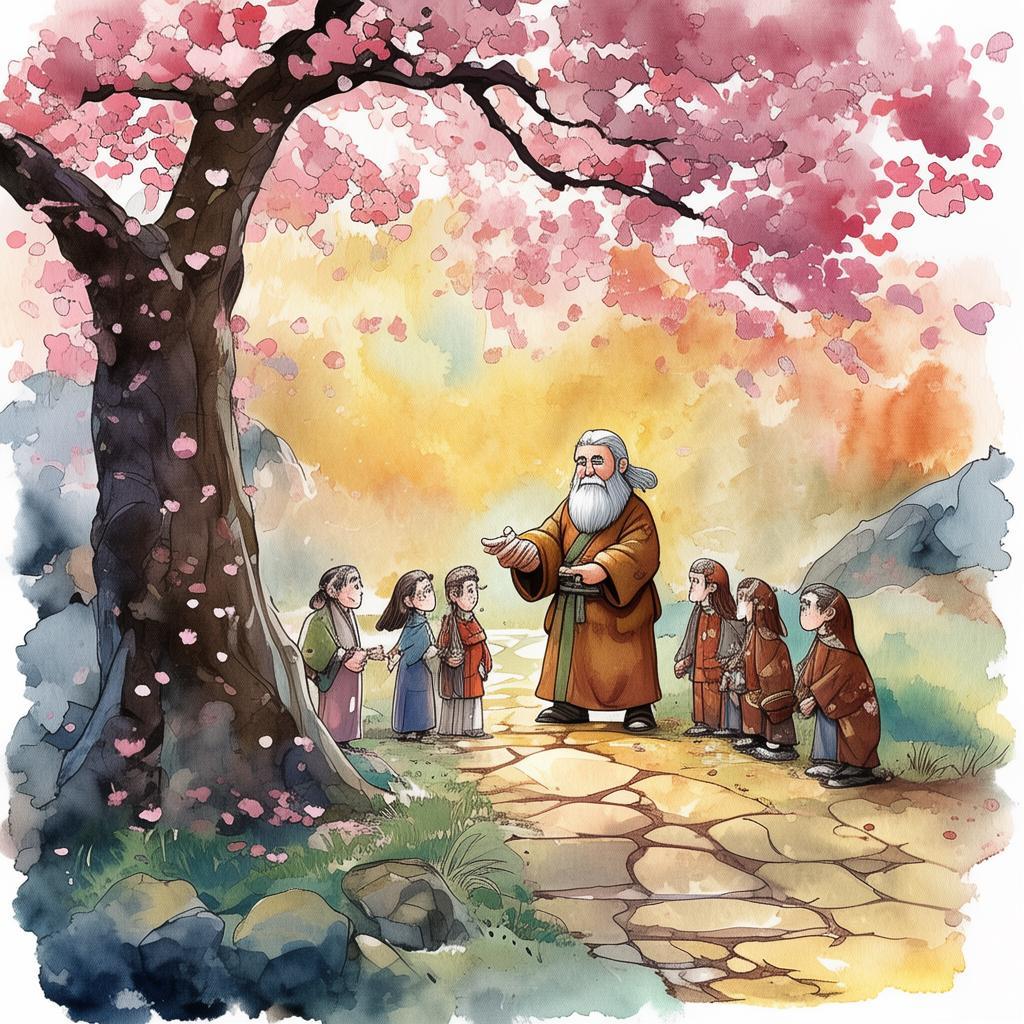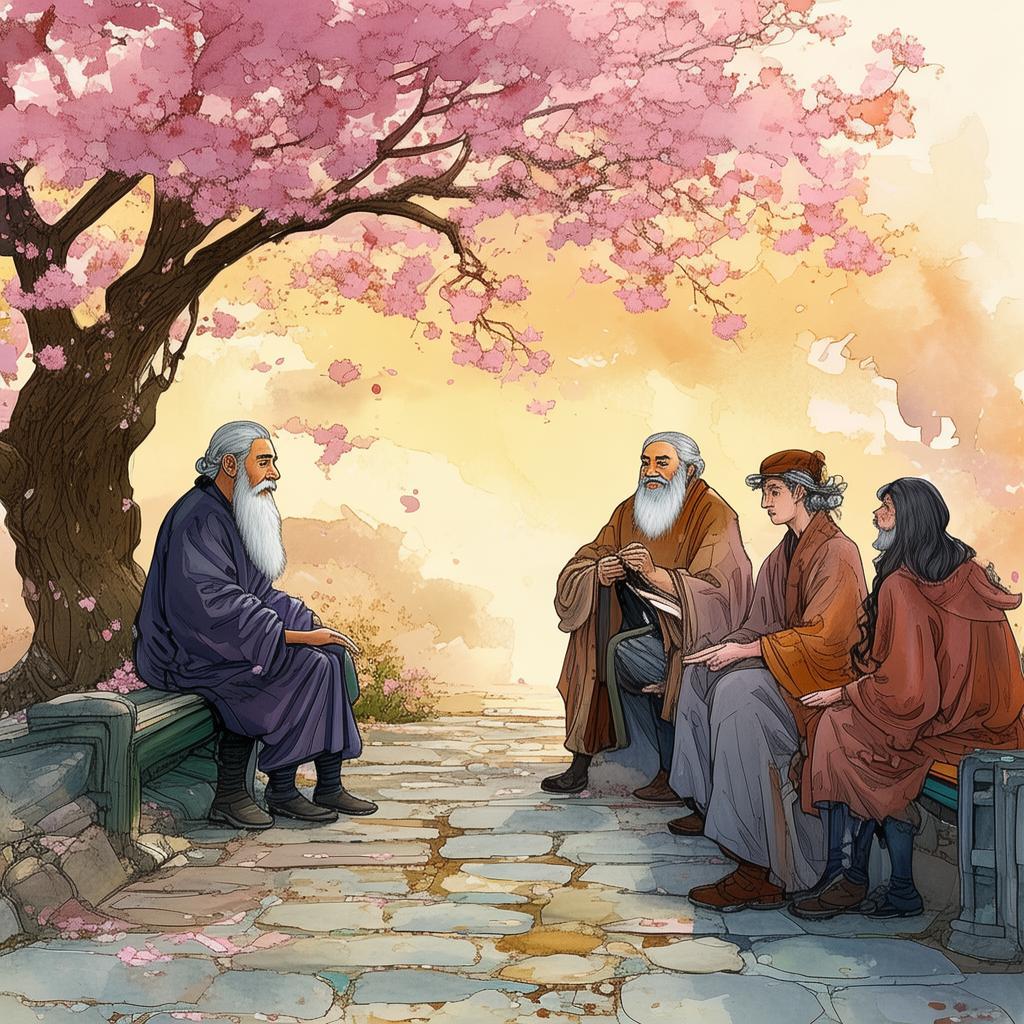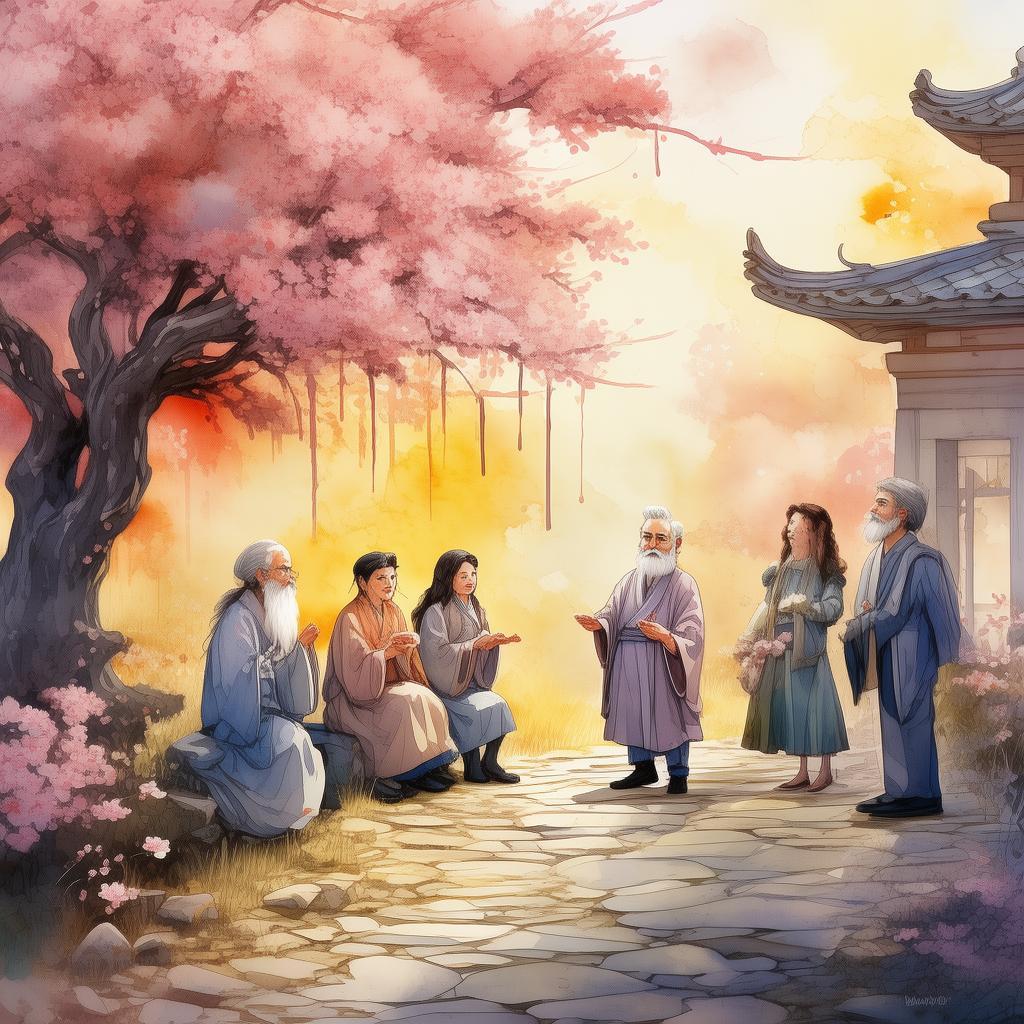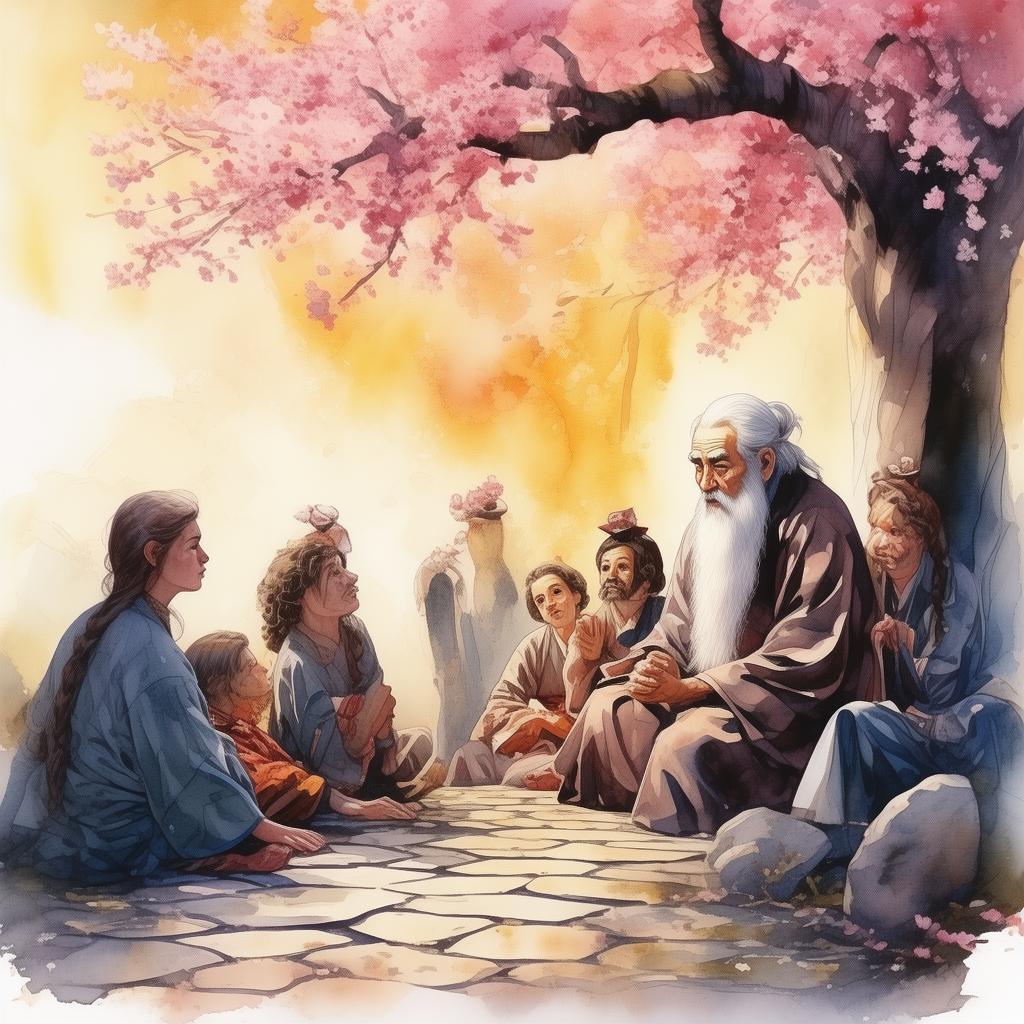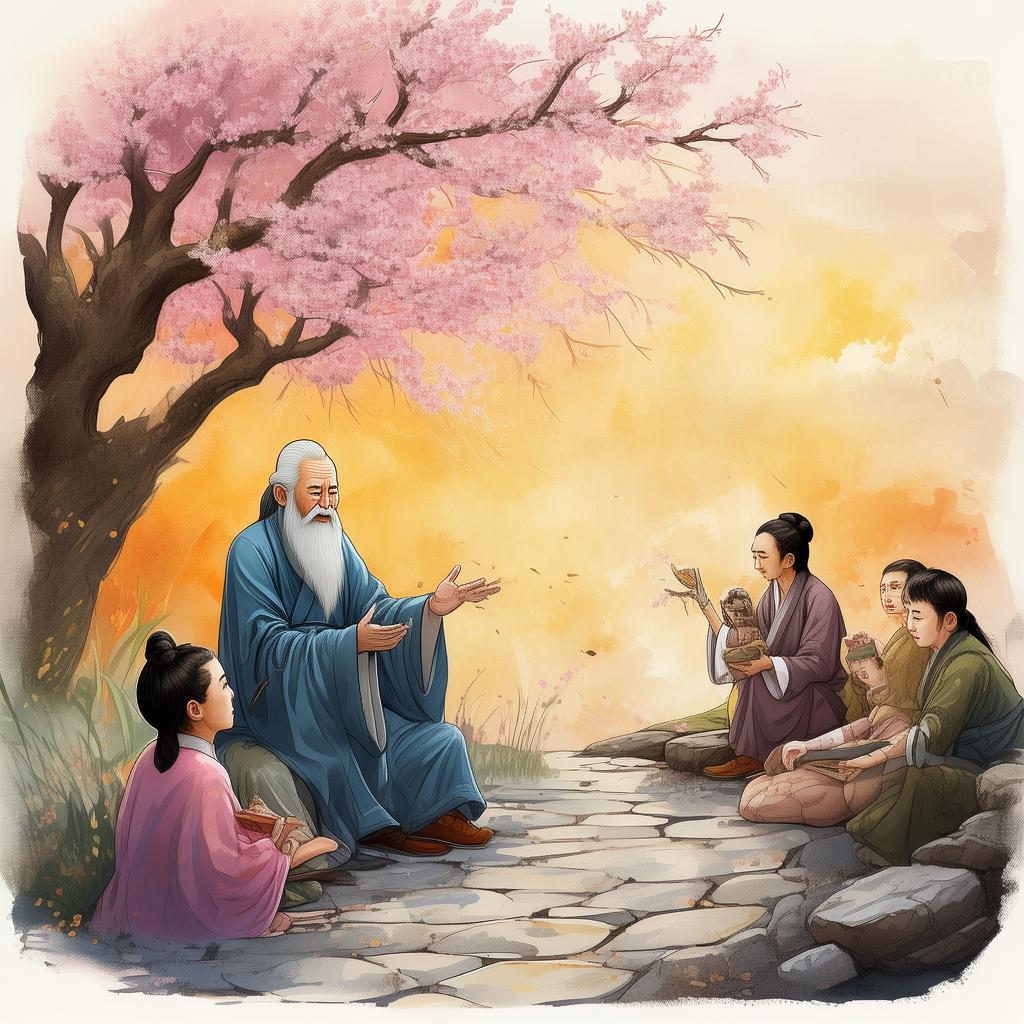The Oracle's Revelation: Confucius and the I Ching's Modern Rebirth
In the bustling city of Beijing, amidst the towering skyscrapers and the hum of the metropolis, there lived a young man named Li Ming. He was an aspiring scholar, deeply rooted in the classics, yet struggling to find his place in the modern world. Li Ming had always been fascinated by the teachings of Confucius and the mystical I Ching, the ancient Chinese texts that held the keys to understanding the universe. He believed that within these ancient scrolls lay the answers to life's deepest questions.
One evening, as Li Ming sat in his dimly lit study, surrounded by dusty books and scrolls, he felt an inexplicable urge to visit the old temple on the outskirts of the city. The temple, an ancient structure that had stood for centuries, was said to be the resting place of the I Ching and the spirit of Confucius. Li Ming had heard tales of prophecies and miracles that occurred within its walls, and he felt a strange pull towards it.
As he walked through the temple's ancient gates, the air grew thick with the scent of incense and the sound of distant bells. The temple was a place of quiet reverence, where the echoes of history seemed to resonate with every step he took. Li Ming wandered through the labyrinthine corridors, his heart pounding with anticipation.
Suddenly, he found himself in a small, dimly lit room. In the center of the room stood an ancient altar, upon which rested an open scroll. The scroll was covered in cryptic symbols and ancient Chinese characters, and Li Ming felt a strange connection to it. Without thinking, he reached out and touched the scroll, and to his astonishment, it began to glow with an ethereal light.
As the light faded, Li Ming found himself standing before a figure that seemed to be both man and spirit. It was Confucius, his face etched with wisdom and kindness. "You have come seeking the truth," Confucius said in a voice that seemed to resonate with the very walls of the temple. "The I Ching holds the keys to understanding the world, but it is not a book of answers. It is a guide to the path you must walk."
Li Ming bowed deeply, his mind racing with questions. "What path, great sage?" he asked.

Confucius smiled, and his eyes seemed to pierce through Li Ming's soul. "The path of self-discovery," he replied. "The I Ching will show you the way, but it is you who must choose your path. The future is not written in stone, but shaped by your actions and decisions."
Li Ming's heart raced as he realized the gravity of the situation. He had always sought to understand the world, but now he realized that the true understanding lay within himself. "What must I do?" he asked, his voice barely a whisper.
Confucius reached out and placed a hand upon Li Ming's shoulder. "Seek the balance between the ancient wisdom and the modern world," he said. "Learn from the past, but do not be bound by it. The I Ching will guide you, but it is your heart and mind that will lead you to the truth."
With these words, Confucius vanished, leaving Li Ming standing alone in the room. He took a deep breath, feeling a newfound sense of purpose. He knew that his journey had only just begun.
In the days that followed, Li Ming began to study the I Ching with renewed vigor. He discovered that the ancient text was not just a guide to the future, but a mirror to his own soul. Each hexagram, each line, each symbol spoke to him of his innermost desires and fears.
One day, as Li Ming meditated upon a particularly difficult hexagram, he felt a presence beside him. It was the spirit of the I Ching, a swirling vortex of light and energy. "You must face your fears," the I Ching's voice echoed in his mind. "Only by confronting the shadows within can you find the light."
Li Ming nodded, understanding the message. He realized that his path was not just about understanding the world, but about understanding himself. He began to confront his fears, to face the parts of himself that he had long hidden away.
As he delved deeper into his studies, Li Ming found that the I Ching and Confucius' teachings were not just guides to the past, but tools for the present. He learned to balance his ancient knowledge with the modern world, to find a harmony between tradition and progress.
One evening, as Li Ming stood on the rooftop of his apartment building, gazing out over the city, he felt a profound sense of peace. He had found his path, his balance. The I Ching and Confucius had not just guided him, but had become a part of him.
In that moment, Li Ming knew that his journey was far from over. There were still many hexagrams to read, many lessons to learn. But he was ready, for he had found the balance between the ancient wisdom and the modern world.
And so, the young scholar continued his journey, a beacon of light in a world that was often dark and uncertain. He had found the truth, not in the words of the I Ching or the teachings of Confucius, but in the path that he had chosen for himself.
✨ Original Statement ✨
All articles published on this website (including but not limited to text, images, videos, and other content) are original or authorized for reposting and are protected by relevant laws. Without the explicit written permission of this website, no individual or organization may copy, modify, repost, or use the content for commercial purposes.
If you need to quote or cooperate, please contact this site for authorization. We reserve the right to pursue legal responsibility for any unauthorized use.
Hereby declared.




